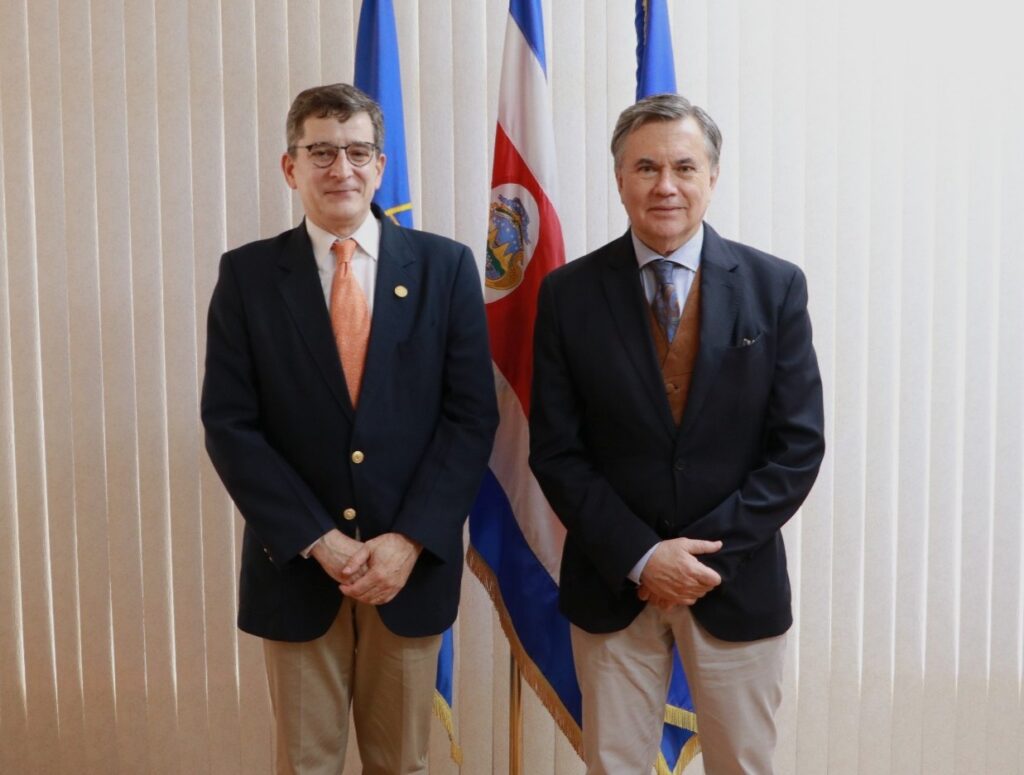
San Jose, 20 February 2025 (IICA) – The Secretariat for Central American Economic Integration (SIECA) and the Inter-American Institute for Cooperation on Agriculture (IICA) are intensifying their joint work, by establishing a regional chapter of the Public Policy Observatory for Agrifood Systems (OPSAa).
The aim is to ensure that production and trade information is made available to Central American countries in real time, thereby facilitating increased market access for the region’s agricultural products.
SIECA Secretary General, Francisco Lima, and Director General of IICA, Manuel Otero, agreed on the initiative during a meeting at the Institute’s Headquarters in San Jose, Costa Rica.
Launched by IICA in 2022, the Observatory is a digital platform that informs the decision-making process of policymakers, as well as promotes partnerships, cooperation initiatives and experience sharing among stakeholders and countries in the region.
In keeping with discussions, a regional chapter of OPSAa will be established at SIECA Headquarters in Guatemala City, which will utilize information from both organizations to intensify the organizations’ work focusing on the Central American countries.
SIECA is the technical and administrative body of the Central American Economic Integration Process. Its mission is to facilitate the economic integration of its members (Costa Rica, El Salvador, Guatemala, Honduras, Nicaragua and Panama) and their access to international markets.
SIECA Secretary General, Francisco Lima, a national of El Salvador, has more than twenty-five years’ experience in international law, foreign trade and development.
More information:
Institutional Communication Division.
comunicacion.institucional@iica.int











